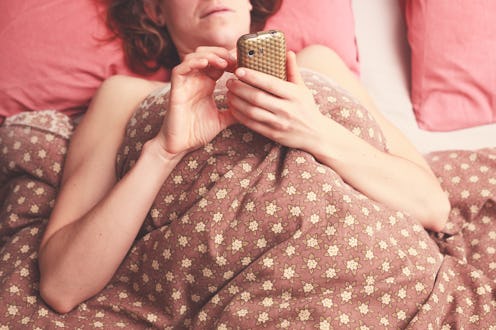Life
Think Twice Before Bringing Your iPhone to Bed

If you’re of the self-help variety, you’ve probably heard it before: bringing techno-centric accessories to bed with you is bad news. But a recent study reported by the Atlantic confirms what many of us have heard time and time again, suggesting that the LED screens of electronics are bad for your health by forcing your brain to stay “unnaturally” alert. Moving beyond the typical narrative that electronics, particularly smart phones or laptops, are merely hyper-stimulating, findings now suggest that the light emitted from your device may be at the root of poor sleep patterns (and this is what your brain looks like on little sleep).
In research outlined in Proceedings of the National Academy of Sciences, the effects of light-emitting devices can delay the time it takes you to nod off, disrupt your circadian (internal) clock, impact your REM cycle, and also add to your morning grogginess. All of this, when considered as a whole, is enough to negatively impact your day-to-day routine both significantly and noticeably. Over the course of five days, 12 sleep subjects were given either LED-powered reading materials or a good ol’ fashioned book (remember those?). By comparing the usage of electronic materials versus printed reading materials before bedtime as a means of unwinding, experts were able to deduce that the sum of negative impacts created by electronics was enough to biologically and negatively alter our brains.
“Overall, we found that the use of portable light-emitting devices immediately before bedtime has biological effects that may perpetuate sleep deficiency and disrupt circadian rhythms,” says the study, “both of which can have adverse impacts on performance, health, and safety.” The takeaway? When reaching for something to read before you doze off, grab a paperback rather than your iPhone at least an hour before bed to allow your brain to power down naturally. Emojis be damned.
Image: LoloStock/Fotolia